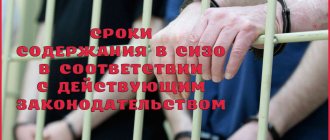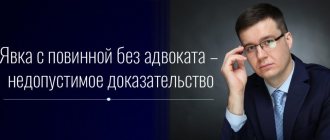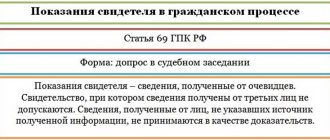1. The participation of a defense attorney in criminal proceedings is mandatory if: 1) the suspect or accused has not refused a defense attorney in the manner established by Article 52 of this Code; 2) the suspect or accused is a minor; 3) the suspect or accused, due to physical or mental disabilities, cannot independently exercise his right to defense; 3.1) the trial is conducted in the manner prescribed by part five of Article 247 of this Code; 4) the suspect or accused does not speak the language in which the criminal proceedings are being conducted; 5) the person is accused of committing a crime for which a penalty of imprisonment for a term of more than fifteen years, life imprisonment or the death penalty may be imposed; 6) the criminal case is subject to trial by a court with the participation of a jury; 7) the accused filed a petition for consideration of the criminal case in the manner established by Chapter 40 of this Code; the suspect filed a petition for an investigation in a criminal case in an abbreviated form in the manner established by Chapter 32.1 of this Code.
2. In the cases provided for in paragraphs 1-5 of part one of this article, the participation of a defense attorney is ensured in the manner established by part three of Article 49 of this Code, and in the cases provided for in paragraphs 6, 7 and 8 of part one of this article - from the moment of application although if one of the accused petitions for consideration of a criminal case by a court with the participation of a jury or a petition for consideration of a criminal case in the manner established by Chapter 40 of this Code, or from the moment the suspect submits a petition for proceedings in a criminal case in the manner established by Chapter 32.1 of this Code.
3. If, in the cases provided for in part one of this article, a defense attorney is not invited by the suspect, accused, his legal representative, as well as other persons on behalf of or with the consent of the suspect, accused, then the inquiry officer, investigator or court ensures the participation of the defense attorney in criminal proceedings.
Everything about criminal cases
Go to the text of the Code of Criminal Procedure
Url Additional information:
I). Invitation of a defender
— Part 1 50 Code of Criminal Procedure
a defense attorney may be invited by the accused himself
— Part 1 50 Code of Criminal Procedure
the defender may be invited - by other persons
— Part 1 50 Code of Criminal Procedure
the accused has the right to invite several defense attorneys
II). Appointment of a defender
- Part 2 50 Code of Criminal Procedure
appointment of a government lawyer at the request of the accused
Waiting for the defender
- Part 3 50 Code of Criminal Procedure
wait 5 days, then appoint (or without a lawyer)
- Part 4 50 Code of Criminal Procedure
wait 24 hours from arrest, then appoint (or without a lawyer)
Payment
- Part 5 50 Code of Criminal Procedure
payment for an appointed lawyer from the budget (initially)
The participation of a lawyer does not reduce the scope of rights
Can't be
the scope of rights due to the participation of a defense lawyer has been reduced
Anyone can invite
Anyone
may invite a lawyer for any accused
The employer has the right to remain in the shadows
Who invited the lawyer
may remain secret (
Part 5 Article 6
CPA)
Five iron days
Iron day
, five mandatory days to wait for a lawyer (
Part 3 50 of the Code of Criminal Procedure
)
Article 50 of the Code of Criminal Procedure. Invitation, appointment and replacement of a defense lawyer, payment for his work
Url Additional information:
- Part 1 16 Code of Criminal Procedure
the accused has the right to defend himself with the help of a lawyer
— clause 12
Any person can invite a lawyer at Plenum No. 29
Two different rights
Right to defense
- these are two different rights (to self-defense and to the assistance of a defender)
1) The defender is invited:
- the suspect, the accused, his legal representative;
Url Additional information:
- Part 4.1 49 Code of Criminal Procedure
meeting before entering into an affair, to obtain consent
— p.p. "b" p.4
Standard for obtaining consent to defense - if invited by another
Anyone can invite
Anyone
may invite a lawyer for any accused
- as well as other persons on behalf of or with the consent of the suspect or accused.
Url Additional information:
— clause 12
Plenum No. 29, if there are several lawyers, then the appearance of one is sufficient
SITUATIONS from practice
Two lawyers
, are they obliged to notify and ensure the participation of each of them?
The suspect or accused has the right to invite several defense attorneys.
Url Additional information:
- Part 3 51 Code of Criminal Procedure
if a defense attorney is not invited, they are required to provide one
— clause 2
Plenum No. 1 appeal against the refusal to appoint a defense lawyer
- paragraph 14
Plenum No. 29 - you cannot choose a free lawyer
Lawyer by appointment
State Advocate
, appointed in accordance with
Part 3 51 of the Code of Criminal Procedure
2) At the request of the suspect, the accused,
the participation of a defense attorney is ensured - by the inquiry officer, the investigator, the court.
Url Additional information:
— clause 12
Plenum No. 29 five days for a lawyer to appear in court
Five iron days
Iron day
, five mandatory days to wait for a lawyer (
Part 3 50 of the Code of Criminal Procedure
)
3) If the invited defense attorney fails to appear within 5 days from the date of filing a request to invite a defense attorney, the inquiry officer, investigator or court has the right to:
- invite the suspect or accused to invite another defense lawyer,
Url Additional information:
— clause 5, part 3, article 31
N 63-FZ, the council of the chamber organizes work as intended
— clause 3.1, part 3, article 37
N 63-FZ The FPA Council determines the procedure for its intended work
- and in case of his refusal to take measures to appoint a defense lawyer in the manner determined by the council of the Federal Chamber of Lawyers.
Url Additional information:
- Part 4 215 Code of Criminal Procedure
failure of the defense attorney to appear when familiarizing himself with the case materials
If the defense attorney participating in the criminal case:
— within 5 days cannot take part in the production of a specific procedural action,
- and the suspect, the accused - does not invite another defense lawyer,
- and does not apply for his appointment,
then the inquirer or investigator has the right to carry out this procedural action - without the participation of a defense lawyer (except for the cases provided for in paragraphs
2 - paragraph 7, part 1 of 51 of the Code of Criminal Procedure).
4) If within 24 hours
from
the moment the suspect is detained or the suspect or accused is taken into custody, the appearance of the defense attorney invited by him is impossible, then the inquiry officer or investigator takes measures to appoint a defense attorney in the manner determined by the council of the Federal Chamber of Lawyers.
If the suspect, accused refuses the appointed defense attorney, investigative actions with the participation of the suspect, accused can be carried out - without the participation of a defense lawyer (except for the cases provided for in paragraphs 2 - 7, part 1 of 51 of the Code of Criminal Procedure).
Url Additional information:
Regulatory framework (right to a free lawyer)
- Part 4 16 Code of Criminal Procedure
right to free defense
- Part 5 50 Code of Criminal Procedure
payment for an appointed lawyer from the budget (initially)
— Part 1 48
Constitution of the right to free legal assistance
— clause 5
Plenum No. 42 list of situations when costs are not borne by the defendant
Appointed lawyer services
Pseudo-free
appointed lawyer, the actual payment is collected
5) If a lawyer participates in a preliminary investigation or trial by appointment of an inquiry officer, investigator or court, the costs of remunerating his labor are compensated from the federal budget.
Return to the text of the Code of Criminal Procedure
Seek advice
Commentary on Article 50 of the Code of Criminal Procedure of the Russian Federation
1. As follows from the content of this article, the law uses the concepts: “inviting a defense attorney,” “ensuring the participation of a defense attorney,” and “appointing a defense attorney.” The invitation is carried out by the suspect or accused himself or his legal representative at his own discretion. (On the concept of a legal representative, see paragraph 10 of the book to paragraph 12 of Article 5.) Other persons (excluding the legal representative) can invite a defense lawyer only on behalf of or with the consent of the suspect or accused. If the suspect or accused has a legal representative due to the fact that they are minors, then their order or consent to carry out a transaction at the invitation of a defense lawyer requires receiving written confirmation from their legal representative due to the requirements of Part 1 of Art. 26 Civil Code. If it turns out that a person who has committed a criminally unlawful act has been declared incompetent, then inviting a defense lawyer or giving instructions or consent to his invitation is the exclusive right of his guardian (Part 2 of Article 29 of the Civil Code). However, according to the literal meaning of Part 1 of this article, only the accused or suspect himself can invite several defense attorneys, which is hardly justified. The invitation of a defense attorney must be made at the written or oral (with entry into the protocol of the corresponding investigative or other procedural action) petition of the suspect or accused, not only when they are in custody, but also in all other cases, since from the moment such a petition is filed, the law may impose deadlines for the appointment of a defender (see paragraph 3 of this article on this). Failure to notify close relatives of the suspect or accused of these requests in decisions of the RF Supreme Court in specific cases was considered as a violation of the accused’s right to defense <1>. It seems that the investigator, the inquiry officer and the court are obliged to convey information about such a petition not only to close relatives, but also to legal representatives (persons who can be recognized by them), as well as to other persons indicated by the suspect or accused in his petition.
——————————— <1> BVS of the Russian Federation. 1989. N 10. P. 7.
2. At the request of the suspect or accused, the participation of a defense attorney may be provided by the interrogating officer, the investigator and the court. Ensuring the participation of a defense lawyer differs from inviting him in that: a) the subjects of the provision are the inquiry officer, the investigator and the court; b) it is not carried out on instructions (which the suspect or accused cannot give to the persons conducting the process), but only at his request. The practical meaning of this distinction is obvious. The order to invite a defender is regulated by Ch. 49 of the Civil Code of the Russian Federation and is associated with the conclusion of an agency agreement (written or oral). The attorney is obliged to personally execute the order; inform the principal, upon his request, all information about the progress of the execution of the order; transfer to the principal without delay everything received under a transaction made in pursuance of an order (for example, a written agreement with a lawyer), etc. (Article 974 of the Civil Code of the Russian Federation). Inviting a defense attorney without instructions, but with the consent of the suspect or accused, is covered by the provisions of Chapter. 50 of the Civil Code of the Russian Federation (“Action in someone else’s interest without instructions”). In particular, a person who acted in the interests of others assumes obligations under the contract for some time, incl. a compensated transaction (Article 986 of the Civil Code), and upon completion of actions in someone else’s interest, it is obliged to provide the person in whose interests it acted with a report (Article 989 of the Civil Code of the Russian Federation). All these provisions are inapplicable to the relationship between the suspect (accused) and the investigator, the interrogating officer and the court. Ensuring the participation of a defense attorney by the named persons is a purely procedural institution and does not give rise to civil obligations for them, although they act at the request and in the interests of the suspect or accused. At the same time, obtaining the consent of the suspect and the accused for the participation in the case of a defense lawyer represented by way of security is mandatory. Ensuring the participation of a defense attorney can be carried out both in the form of his appointment by the inquiry officer, investigator and court, and in the form of creating conditions for inviting a defense attorney by other persons. The investigator, the investigator, the court are obliged to provide the suspect and the accused, at his request, with the opportunity to contact a lawyer (principle 18 of the Code of Principles for the Protection of All Persons Subject to Detention or Imprisonment in any Form) in order to exercise the right to choose a specific defense lawyer (subparagraph “c” of paragraph 3 of Article 6 of the Convention for the Protection of Human Rights and Fundamental Freedoms), or in the manner established by Art. 96 of the Code of Criminal Procedure of the Russian Federation, with relatives and other persons who will do this on behalf of the suspect or accused. If the suspect and accused do not have relatives or other trusted persons, the inquiry officer, investigator or court, at the request of the suspect or accused, can also contact a specific defense lawyer if the suspect and accused report a real possibility of his participation in the case, and find out the question of his participation.
3. The appointment of a defense attorney is carried out by the inquiry officer, the investigator and the court, also if the defense attorney fails to appear within 5 days from the date of application of the suspect or accused to invite him. But in this case, the inquiry officer, investigator or court first suggests that the suspect or accused invite another defense lawyer, and if he refuses to do this, take measures to appoint a defense lawyer. In a similar way, the issue of replacing a defense attorney is resolved in the articles devoted to the end of the preliminary investigation and the trial (Articles 215, 248).
In part 3 com. The article states that the inquiry officer, investigator and the court have the right to make such an offer, however, since subsequent measures to appoint a defense lawyer can be taken by them only if the suspect or accused refuses this offer, this is rather their responsibility.
A similar rule applies to a defense attorney who has already been admitted to participate in the case, but who, for whatever reason, cannot take part in a specific procedural action for 5 days. It should be borne in mind that according to clause 5, part 1, art. 53, the defense attorney has the right to participate in investigative actions only when this is requested by the suspect (accused) or by the defense attorney himself. A significant difference from the general procedure is that the inquirer or investigator does not always have to wait 5 days before starting a procedural action, because the law does not speak about the failure of the defense attorney to appear, but about the fact that he cannot take part in the procedural action. Therefore, if it is established that the defense attorney is busy with another case at this time, or is ill, or has other valid reasons for failure to appear within 5 days, and the suspect and the accused do not apply for the opportunity to invite another defense attorney or to appoint him as an investigator and by the investigator, then the procedural action can be carried out without a defense attorney, except for cases where the participation of a defense attorney is mandatory (clauses 2 - 7, part 1, article 51). From the content of this instruction it is not entirely clear whether the investigator and interrogating officer in such a situation should offer the suspect and accused to invite or appoint another defense attorney to conduct the procedural action, or whether they can, after notifying the defense attorney about the time and place of its holding, simply silently wait 5 days, and then act without the participation of a defender? It seems that they are obliged to invite the suspect and the accused to invite or appoint a defense lawyer due to the general rule that rights are not assumed, but explained (Part 1 of Article 11). Otherwise, a situation of forced refusal of the defender cannot be ruled out, because the suspect and the accused may not invite another defense lawyer and may not apply for his appointment either due to legal ignorance or lack of funds to repay the fees of a new lawyer. It is necessary to take into account that the refusal of the accused (defendant) from the services of a defense lawyer who did not appear at the court hearing in the practice of the RF Armed Forces was previously always considered as forced and violating the right of the accused to defense <1>. The same can be said about other forms of refusal of a defender with the actual failure to ensure the possibility of his participation in the process <2>.
——————————— <1> See, for example: BVS RF. 1990. N 12. P. 2, etc. <2> See: BVS RF. 1984. N 5. P. 10; 1988. N 12. P. 11; 1989. N 4. P. 10; and etc.
4. Part 4 of this article provides for more stringent rules for the provision of a defense attorney when detaining a suspect or taking a suspect or accused into custody. If it turns out that the appearance of the defense attorney invited by them is impossible within 24 hours from the moment of arrest or detention, the defense attorney is provided in the order of appointment, without inviting the suspect or accused to invite another defense attorney. If the suspect or accused refuses an appointed defense attorney, investigative actions with the participation of the suspect or accused, according to this norm, can be carried out without the participation of a defense attorney. Apparently, the establishment of this rule is explained, in particular, by the need to interrogate a detainee within 24 hours (Part 2 of Article 46). However, this norm cannot be considered successful, because it also creates the danger of forced refusal of a lawyer and violation of the right to defense. Refusal of a suspect or accused from a specific defense lawyer, incl. appointed, is not equivalent to refusal of a defender at all. If the appointed defense attorney does not suit the suspect or accused due to his low legal qualifications, moral qualities, or the position that he proposes to take for the client, the suspect or accused has the right to refuse his services. This should not have a negative impact on his procedural position, which this rule does not take into account. It seems that if in such a situation there is a refusal of the appointed defense lawyer, the inquiry officer, investigator or court are obliged to find out from the suspect and the accused what caused his refusal of the appointed defense lawyer, explain to him the essence and legal consequences of the forced refusal and, if confirmed, offer to replace the defense lawyer again , even if this entails missing the 24-hour period for the first interrogation of the detainee. The right to defense is a greater value than compliance with the procedural deadline, especially since the latter was established mainly for the purpose of ensuring the right to defense.
5. Part 4 com. The article leaves without a direct answer the situation when a suspect appears in the process not as a result of detention, but due to the initiation of a criminal case against him (Clause 1, Part 1, Article 46), etc. For example, an urgent search or inspection of the scene of an incident must be carried out against a suspected person against his will (Part 5 of Article 177). In this case, a criminal case must be initiated against him, and thus he also becomes a suspect. Literally part 4 com. article, the suspect is not required to expect an invitation to a lawyer within 24 hours. This can probably be explained by the fact that when a suspect is detained, a search, etc. is postponed. for a day is not too dangerous for the interests of the investigation, because, while in custody, he, as a rule, cannot interfere with establishing the truth. However, it should be borne in mind that in any case the suspect must be explained the right to the assistance of a defense lawyer (Part 1, Article 11, Clause 3, Part 4, Article 46, Clauses 2 - 3, Part 3, Art. 49). But, having been explained, it must also be implemented. Consequently, if in relation to a suspect who has not yet been detained in accordance with Art. Art. 91 - 92, any investigative actions are carried out (including a search, examination, etc.), he must have the opportunity to exercise his right to the assistance of a defense lawyer. If you don’t apply Part 4 to it. article, all that remains is the possibility of applying Part 3 of the same article, which leads to absurdity, because according to this norm, expect to appear during a search, etc. the defense lawyer will have to wait 5 days, which is unacceptable for urgent investigative actions. This means that we must extend the scope of Part 4 under consideration to this case and assume that for any suspect, the waiting period for a defense lawyer during investigative actions - if we can assume that he has time to meet it - is 24 hours.
If a criminal case has not been formally initiated, then it should be remembered that the actual detention, by virtue of the direct instructions of paragraph 3 of Part 3 of Art. 49, still leads to the appearance of a suspect figure. Conducting an urgent inspection against the will of a person living in the premises or even a search (which is also illegal before the initiation of a case) usually involves the actual restriction of a person’s freedom of movement - at least for the duration of the investigative action, i.e. his actual detention. This means that when filing a request for the participation of a defense attorney invited by such a person, the investigator is obliged to find out whether he will be able to appear within 24 hours, and if so, he must postpone the investigative action or actions until his appearance.
The only “stumbling block” in this case, at first glance, may be the phrase: “the appearance of the defense lawyer invited by him [the suspect].” That is, this rule applies only when the defender has already been invited, i.e. the suspect or another person acting in his interests has expressed a request to a lawyer to participate in the case and received his consent. However, this obstacle in practice can be easily overcome by the suspect’s statement that he already has an agreement with a lawyer on the conduct of any of his affairs, incl. all criminal, etc. When a lawyer confirms (for example, by telephone) this information and the possibility of his appearance on time, rules part 4 com. Articles come into effect immediately.
6. The Code of Criminal Procedure of the Russian Federation does not contain the norm, which was contained in the Code of Criminal Procedure of the RSFSR (Part 7, Article 47), that the head of legal education or the presidium of the bar association is obliged to assign a lawyer to defend the suspect or accused upon receipt of notification of the appointment. However, participating in the implementation of investigative actions in accordance with Art. 51, a lawyer must comply with the decisions of the council of the bar association on the procedure for issuing and accepting assignments in accordance with Art. 51 of the Code of Criminal Procedure of the Russian Federation (Clause 4, Part 1, Article 7 of the Federal Law “On Advocacy and the Bar in the Russian Federation”). These decisions determine the procedure for the participation of lawyers as defense attorneys in criminal proceedings by appointment. Thus, in paragraph 1 of the decision of the Council of the Moscow Bar Association dated March 25, 2004 N 8 “On determining the procedure for providing legal assistance by lawyers participating as defense attorneys in criminal proceedings by appointment” <1> it is stated that “a request for legal assistance for the appointment is not sent to a specific lawyer, but to a legal entity, which allocates a lawyer in the order of priority and in case of unemployment in cases by agreement.” A similar rule was established by the decision of the Council of the St. Petersburg Bar Association “On the procedure for the participation of a lawyer as a defense attorney in criminal proceedings as appointed by the bodies of inquiry, preliminary investigation or court.” This decision explains that “the body of inquiry, preliminary investigation. or the court, which is handling the criminal case, sends requests for the assignment of lawyers to legal entities (bar associations, law offices, law offices) or their structural divisions (lawyer consultations) located in the area where the inquiry, preliminary investigation or trial was conducted "
——————————— <1> Bulletin of the Moscow Bar Association. 2003. Issue N 1. P. 10 - 12; 2004. Issue N 3 - 4 (5 - 6). pp. 16 - 18; issue N 11 - 12 (13 - 14). pp. 28 - 30, 35 - 37.
The Constitutional Court of the Russian Federation in the Determination of October 19, 2010 N 1357-О-О indicated that the norms of part four of Article 49 and part three of Article 50 of the Criminal Procedure Code regulating the appointment of a defense lawyer, acting in conjunction with part two of Article 6 of Federal Law of May 31, 2002 N 63 -The Federal Law “On advocacy and advocacy in the Russian Federation,” which provides for the issuance of a warrant by the relevant legal entity, does not imply the appointment of a defense lawyer in violation of the legislation on advocacy and advocacy from another subject of the Russian Federation.
In 2005, the European Court of Human Rights recommended that Russia cancel the verdict of one of the Russian courts, since it was established that the investigator, on his own initiative, invited a specific lawyer to participate in the preliminary investigation and subsequently in court. The practice of appointing lawyers, bypassing the legal education, gives rise to the so-called. “pocket lawyers” and leaves doubts about their impartiality. Therefore, it is unlawful for a lawyer to accept an assignment in accordance with Art. 51 of the Code of Criminal Procedure of the Russian Federation to participate in investigative actions not through one’s legal education, but directly from the investigator or the court.
7. According to paragraph 5 com. articles with the participation of a defense attorney, the costs of remunerating his work are compensated from the federal budget. The free use of defense counsel for suspects and accused persons is stated in Part 4 of Art. 16 and paragraph 8, part 4, art. 47. This means that the cost of paying for his labor is borne by the state. For information about the amount of remuneration for a lawyer, see com. to clause 5, part 2, art. 131.
8. Procedural costs associated with the participation of an appointed lawyer in a criminal case may be recovered by the court from the convicted person (Determination of the Investigative Committee according to the Criminal Code of the Armed Forces of the Russian Federation No. 52-O04-13 in the Myusov case).






